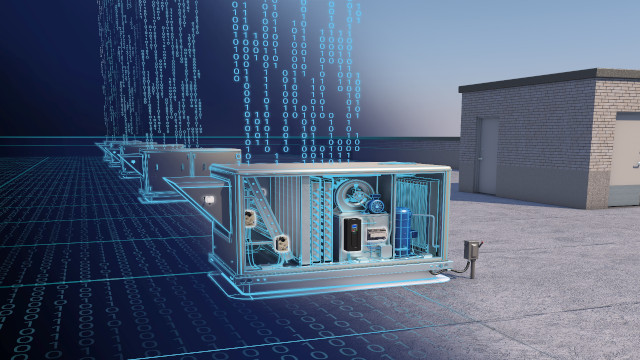
Crafting Comfort: Navigating the World of HVAC System Design
Embarking on the journey to optimal indoor comfort involves a meticulous exploration of HVAC system design. This article delves into the intricacies of HVAC system design, unraveling the various components, considerations, and innovations that contribute to crafting a space where comfort meets efficiency.
Understanding the Fundamentals:
At the core of every comfortable indoor environment lies a well-thought-out HVAC system design. This design is not merely about heating or cooling a space but encompasses a comprehensive approach that considers factors such as size, layout, insulation, and occupancy patterns. Understanding the fundamentals is the first step toward creating an HVAC system that seamlessly integrates with the unique characteristics of the space.
Tailoring the Design to Specific Needs:
No two spaces are alike, and HVAC system design acknowledges this diversity. Tailoring the design to specific needs involves a detailed analysis of the space’s requirements. Whether it’s a residential home, commercial office, or industrial facility, each space demands a customized approach to HVAC system design. This tailored strategy ensures that the system meets the exact heating, ventilation, and air conditioning needs of the occupants.
Optimizing Energy Efficiency:
Efficient comfort goes hand in hand with energy efficiency. HVAC system design focuses on optimizing energy usage to reduce environmental impact and utility costs. This includes selecting energy-efficient equipment, incorporating smart technologies, and implementing zoning controls. The goal is to create a system that delivers maximum comfort with minimal energy consumption.
Embracing Smart Technologies:
In the realm of HVAC system design, the integration of smart technologies has become a game-changer. Smart thermostats, sensors, and controls add a layer of intelligence to the system. These technologies adapt to changing conditions, learn user preferences, and optimize settings for both comfort and energy efficiency. Embracing smart technologies is a pivotal aspect of modern HVAC system design.
Zoning Controls for Personalized Comfort:
Zoning controls elevate HVAC system design by offering personalized comfort to occupants. This involves dividing the space into zones with independent temperature controls. Whether it’s adjusting the temperature in individual rooms or responding to varying occupancy levels, zoning controls ensure that comfort is customized to meet specific needs. This approach not only enhances comfort but also contributes to energy savings.
Balancing Indoor Air Quality:
Beyond temperature control, HVAC system design encompasses a commitment to indoor air quality (IAQ). Proper ventilation, air filtration, and humidity control are integral components. The design ensures that the system not only provides a comfortable temperature but also delivers clean and healthy indoor air. Balancing IAQ is crucial for the well-being of occupants, particularly in environments where air quality is a paramount concern.
Incorporating Sustainable Practices:
Sustainability is a driving force in contemporary HVAC system design. The incorporation of sustainable practices involves utilizing eco-friendly refrigerants, integrating renewable energy sources, and implementing energy recovery systems. This commitment to sustainability aligns with global efforts to reduce carbon footprints and create environmentally conscious living and working spaces.
Considering Future Expansion and Adaptability:
Effective HVAC system design looks beyond the present, considering future expansion and adaptability. Spaces evolve, and the HVAC system should be designed to accommodate changes. Whether it’s an additional room, a renovation, or a shift in occupancy, a well-designed HVAC system is flexible and can be adapted to meet evolving needs without compromising efficiency.
Collaborative Design and Professional Expertise:
HVAC system design is a collaborative process that involves coordination among architects, engineers, and HVAC professionals. Each stakeholder contributes expertise to ensure that the design aligns with both aesthetic and functional goals. Professional expertise is a cornerstone of successful HVAC system design, ensuring that the final result is not only visually appealing but also optimally functional.
Explore HVAC System Design:
To explore the world of HVAC system design and craft a space where comfort and efficiency converge, visit us. Our team of experts specializes in tailoring HVAC solutions that prioritize design, efficiency, and sustainability. Contact us today to embark on a journey of crafting comfort through meticulous HVAC system design.
